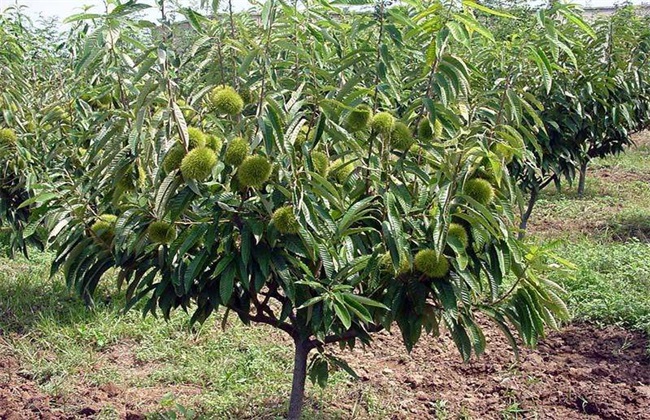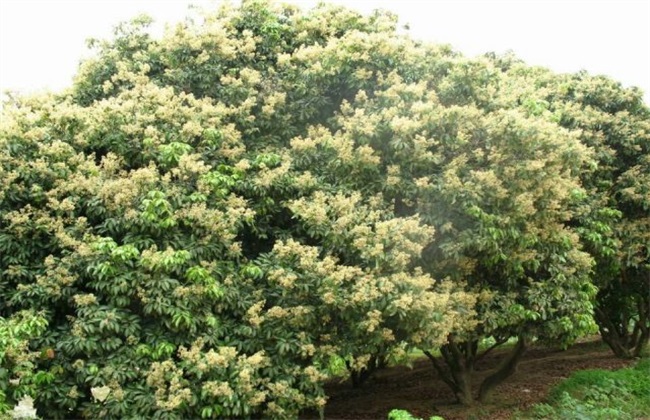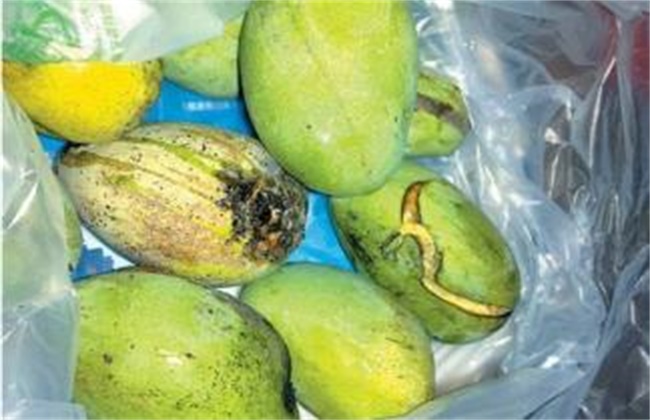Seed Seedling technique of Castanea mollissima
Chestnut has a very long history in China, and its cultivation history has reached nearly 4000 years. Each province in our country has a certain planting area, and now the annual market demand for chestnut is also increasing. So many growers are expanding their acreage. If you want to expand the planting area, then seedling work is indispensable. Xiao Bian today brought you the seedling technology of chestnut seeds. Let's take a look at it together!

1. Land selection and preparation
First of all, we need to select the seedling land of chestnut, seedling land should be based on sufficient soil fertility, thick soft and normal irrigation, and the pH value of the soil should be controlled at about 6. Then in winter of one year before sowing, apply enough base fertilizer in the field, control the fertilizer amount according to the planting area, and keep it at about 7500kg per mu. Then in the spring of that year do a good job of soil preparation, deep soil, eliminate the soil bacteria. Finely grind and level the soil and dig ditches. Then make a 0.5-meter-wide, 0.15-meter-high field bed, keep the trails, and disinfect the soil 4 days before sowing.
2. Seed collection and storage
When chestnut trees mature in autumn every year, we should do a good job of keeping seeds. selecting ripe and plump chestnut fruits as seeds, picking out pests, diseases and wounds in the seeds, and then soaking the healthy and normal seeds in potassium permanganate solution for about 15 minutes for disinfection. Finally, the seeds are stored in a low temperature environment such as a cellar. Castanea mollissima seeds were stored in different layers, each layer was covered with wet sand, and the degree of wet sand should be held by hand. Then in the process of storage, attention should be paid to the prevention and control of rodents, diseases and insect pests, control temperature and humidity, and prevent mildew.
3. Timely sowing
After the ground is cleaned and disinfected, when more than half of the seeds germinate, they can be sown. Before sowing, the moldy and injured seeds should be picked out first to improve the seedling rate. Then control the density on the seedling bed and dig seedling ditches. Sprinkle compound fertilizer into each ditch and control the dosage. After fertilization, cover the fertilizer with a layer of fine soil to prevent direct contact between seeds and fertilizer. Then the seed belly down in the nursery ditch, row spacing control at about 7 cm. Then cover the seeds with about two centimeters of fine soil, and then cover the grass to improve the heat preservation and moisture retention ability and prevent soil hardening.
4. Post-sowing management
After sowing, the seeds will break out of the soil and emerge in about 40 days. In April, it is the initial growth stage of chestnut seedlings. At this time, we should pay attention to the intertillage weeding, thinning seedlings and pest control work. Ensure the healthy growth of seedlings, and then June chestnut entered the fast-growing period. At this time, the growth rate of chestnut seedlings is accelerated, so it is necessary to do a good job of water and fertilizer to meet the water nutrition needs of chestnut. Apply nitrogen fertilizer in due time, and pay attention to proper watering after water and fertilizer to prevent excessive heat from causing seedlings to be burned to death. After August, control the amount of water and fertilizer to prevent excessive nutrition from causing excessive growth of chestnut seedlings.
The above is a brief introduction to chestnut seed seedling technology. Chestnut seedling methods are very many, of which there are common grafting. We should choose the seedling method reasonably according to our own planting technology and various factors such as environment. Today's introduction is here, this article is for reference only, I hope to help everyone oh!
Related
- Moge, come on! The staff of the peasant association in the producing area of cantaloupe were frightened when the crowd gathered.
- Causes and Solutions of low Fruit setting rate of Apple
- Symptoms and control measures of passion fruit virus disease
- Fruit growing lesson: how do apple orchards keep high yields?
- Can you build orchards in the mountains? What are the pros and cons?
- How to manage the coloring period of Crisson grape?
- This paper introduces the processing technology of two kinds of fig products.
- How much is a month for retired teachers in rural areas by 2020?
- How can strawberry planting increase sugar content? We should pay attention to management in many aspects.
- What are the cultivation techniques on how to improve the yield of golden fruit?



